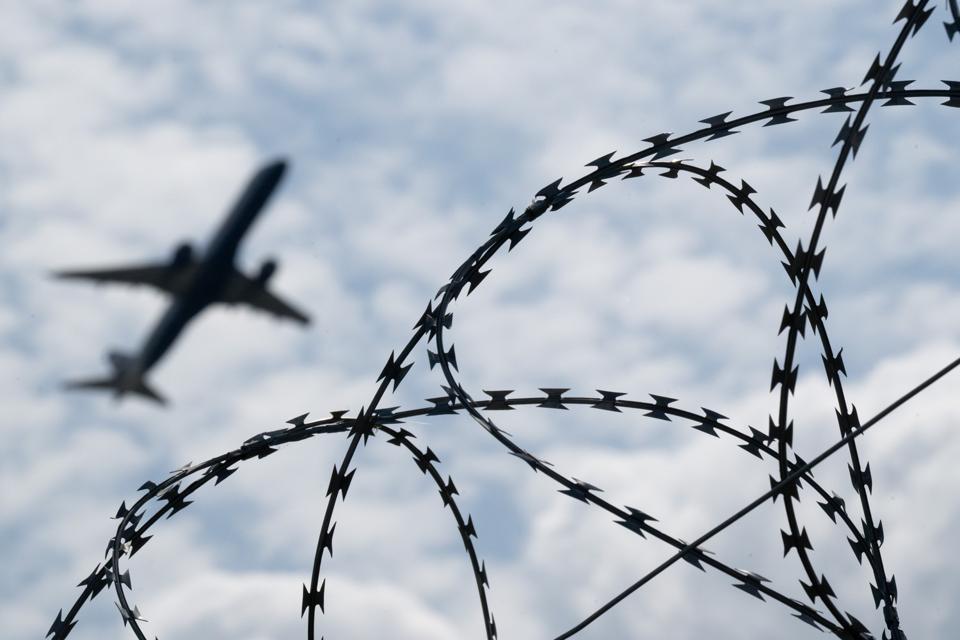Topline
The Supreme Court blocked a district court judge’s order barring the Trump administration from deporting Venezuelan migrants to El Salvador, making the ruling as lawyers of some of the migrants sent away from the U.S. say their clients have no criminal records.
Key Facts
The Supreme Court said in a filing U.S. District Judge James Boasberg, who is based in Washington, D.C., should not have handled the case because the deportation flights at the center of the dispute originated in Texas.
The court said from now on, detainees under the Alien Enemies Act, a law established in 1798 and designed for wartime, must receive notice they are subject to removal under the act and that the notice has to be issued “within a reasonable time” so detainees can challenge their deportation in the proper venue before it is carried out.
Courts within the districts where deportation confinement takes place will be in charge of resolving legal challenges, according to the Supreme Court.
The Supreme Court ruled 5-4 in favor of the Trump administration, with conservative Justice Amy Coney Barrett partially dissenting, joining the court’s three liberal justices.
Contra
Justice Sonia Sotomayor said in her dissenting opinion the court’s decision was “suspect,” adding it made its conclusion “without mention of the grave harm plaintiffs will face if they are erroneously removed to El Salvador or regard for the Government’s attempts to subvert the judicial process throughout this litigation.”
Big Number
75%. That is the share of the deported migrants who did not have criminal records, according to a CBS News investigation. Lawyers for some of the deported migrants have sought to reverse the deportations and pointed out their clients’ lack of criminal records, while the Trump administration has insisted all the migrants are members of Venezuelan gang Tren de Aragua, claiming tattoos on some of those deported were linked to the criminal organization.
Key Background
The Trump administration’s deportation flights landed in El Salvador on March 15 after Boasberg’s ruling barring the flights was issued. The White House argued the flights were legal, that they departed before Boasberg’s ruling and that the judge lost jurisdiction over the matter once the planes exited U.S. airspace. Boasberg, who was in the process of determining whether the Trump administration violated his order barring the flights when the Supreme Court made its ruling, did not ultimately give a final order on the potential violation. The judge previously accused Trump officials of rushing flights out of the U.S. before a judge could rule on their legality, telling government lawyers in a filing last week, “If you really believed everything you did that day was legal and would survive a court challenge, you wouldn’t have operated the way you did.”

